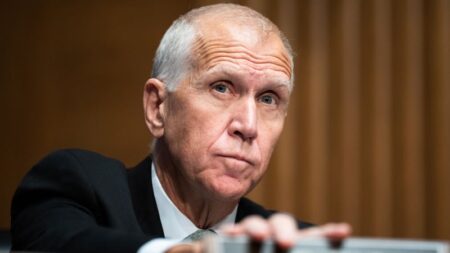Brett McGurk, a CNN global affairs analyst, brings notable experience to the discussion, having held senior national security roles across multiple U.S. administrations, including those of Presidents George W. Bush, Barack Obama, Donald Trump, and Joe Biden. His insights are informed by a comprehensive understanding of the geopolitical landscape, particularly regarding the Middle East’s intricate dynamics.
Last week’s American airstrikes on Iranian nuclear facilities, followed by a ceasefire, require a thorough evaluation of the shifting tides in the Middle East. The critical question emerging from this situation is whether military victories can be transformed into enduring strategic benefits. In crises of national security, it is essential to consider not just what occurs, but also what does not. This notion has never been more pertinent than in the wake of the conflict with Iran, where predictions of an impending all-out war involving a considerable loss of American lives seemed commonplace.
For many analysts, the specter of an American military incursion into Iran conjured fears of significant repercussions. However, these predictions have not materialized. Despite earlier forecasts that an attack on Iran would unleash a wave of retaliation through proxy militias across the region, the reality has proven to be far less severe. In fact, Iran’s response to the U.S. military strikes has been largely ineffectual, exemplified by a half-hearted missile attack on a base in Qatar, which ultimately alienated regional allies rather than uniting them. Furthermore, Iran’s locally aligned militias, including Hezbollah in Lebanon and groups in Iraq, opted to stay their hand, indicating a distinct decline in Tehran’s influence.
Compounding this is the apparent lack of support from key players in a hypothetical “CRINK” alliance comprising China, Russia, Iran, and North Korea during this period of turmoil. While it is acknowledged that these nations may form tactical alliances for specific issues, their hesitance to support Iran amid significant military setbacks signals a broader shift in geopolitical alignments. China’s clear warning against Iranian action in the Strait of Hormuz underscores its economic interests in Gulf oil. Meanwhile, Russia’s ambiguous stance reflects its own challenges, having faced considerable limitations in projecting military power since its involvement in Syria began in 2015.
The fallout from Russia’s past decisions, including its backing of the Assad regime, has left the Kremlin struggling to maintain a foothold in the Middle East. Their advanced defense systems have proven ineffective against Israeli military operations. Coupled with significant losses in Ukraine, it has become evident that Russia lacks the capability or desire to assist Iran materially against U.S. interests. Consequently, the absence of Iranian military retaliation and the subsequent consolidation of regional opposition against Iran reveal not only Tehran’s current weakness but also the fragile fabric of its partnerships with allies.
The military campaign initiated following the October 7 Hamas attacks on Israel resulted in a comprehensive Israeli operation that decimated Iran’s military infrastructure, including key personnel and nuclear capabilities. This efficient display of military strength repositions Israel as the premier military power in the region, a remarkable transformation from its previous standing. The repercussions of Israel’s operations may resonate throughout the Middle East for an extended period.
In practical terms, America’s recent military interventions may have lasting implications beyond the immediate region. The ability of U.S. B-2 bombers to engage targets in Iran from the continental U.S. illustrates a significant leap in military capability that serves as a deterrent for adversaries. However, the long-term success will depend not just on military victories but on strategic diplomacy that fosters peace, stability, and cooperation in the region.
As discussions intensify regarding Iran’s nuclear ambitions and the likelihood of international sanctions being reinstated, the imperative for diplomacy becomes increasingly critical. The relationship between the U.S. and its allies—such as the U.K. and France—will play a vital role in managing negotiations with Iran, particularly as deadlines approach for resuming sanctions. In this context, the overarching goal should be one that secures Iran’s compliance with the Nuclear Non-Proliferation Treaty, which guarantees that its nuclear program is transparent and monitored.
Moreover, establishing a ceasefire in Gaza is equally crucial to stabilizing the broader region. Ongoing negotiations to secure this outcome suggest a window of opportunity, one that must be seized to alleviate tensions. The prospects for renewed collaboration through agreements like the Abraham Accords signify a recognition among Arab nations of Israel’s growing influence as a technological leader.
Ultimately, as the landscape of the Middle East evolves, a sustained effort towards diplomacy will be pivotal. Although challenges remain—whether from Iranian aggression or discontent among Arab populations—the potential for a more stable and prosperous future hinges on collective choices made by the international community. The important decisions taken in the near future will shape the trajectory of regional diplomacy, balancing military achievements against the pressing need for political solutions.











